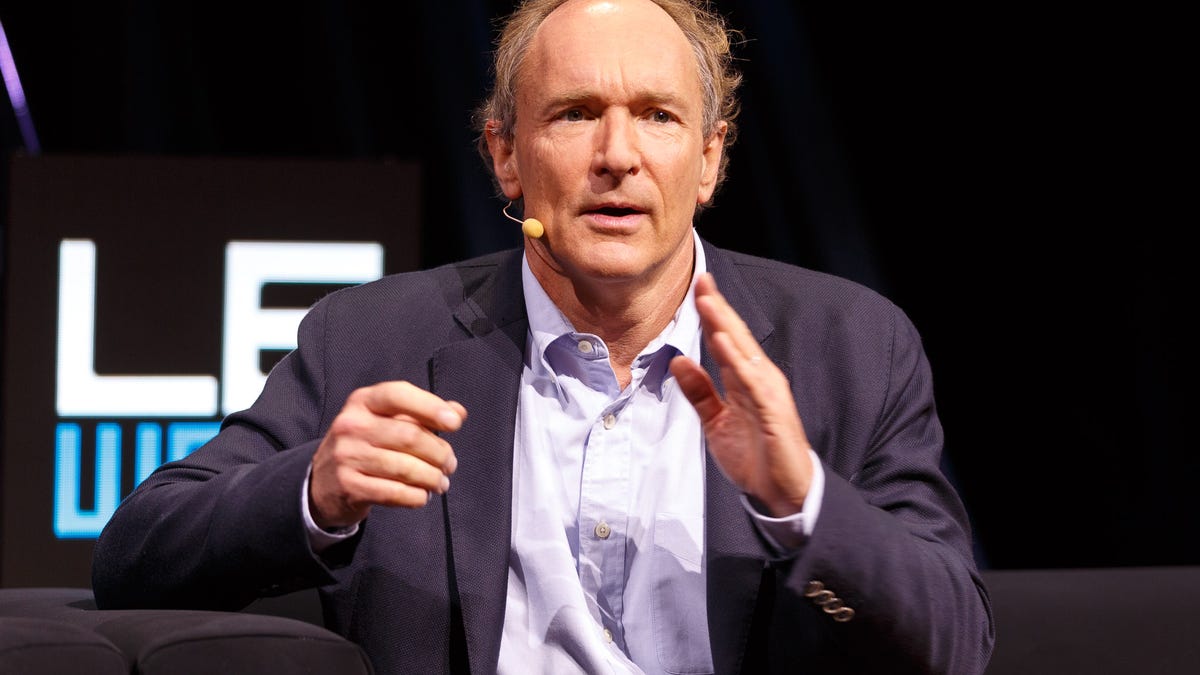World Wide Web creator makes last-minute bid for open Internet in Europe
Tim Berners-Lee pushes for amendments to a proposed European Parliament law that he believes could impede the equal treatment of online traffic, a concept known as Net neutrality.

Web founder Tim Berners-Lee hopes European politicians will vote to protect Net neutrality.
Tim Berners-Lee, known as the father of the Web, urged European politicians on Monday to "save the Internet" by defending the concept of fair treatment of online traffic ahead of an important vote.
The European Parliament this week is set to decide on key legislation governing the future openness of the Internet in Europe and the control Internet service providers have over online traffic. Berners-Lee said he built the Web as an open network, which has been key to its evolution into the ubiquitous platform it is today. The concept of treating all Internet traffic the same is known in the industry as Net neutrality.
Berners-Lee is one of several important voices advocating for urgent amendments to be made to the proposed legislation in order to protect and strengthen Net neutrality. If the amendments are not adopted, "innovation, free speech and privacy, and [...] Europe's ability to lead in the digital economy" are at stake, he wrote in a blog post Monday.
The decision over Net neutrality, which comes a few months after the US passed its own Net neutrality law, has the potential to significantly affect European Internet users. Berners-Lee and other opponents, including several tech companies, believe the proposed measure offers loopholes that allow Internet service providers to manipulate the speed of traffic, create priority "fast lanes" for larger businesses willing to pay and potentially slow down traffic for others. Internet service providers have argued they need the flexibility to manage network traffic to ensure everyone gets access.
In order to preserve Net neutrality, Berners-Lee is encouraging members of the European Parliament (MEPs) to vote in favour of four specific amendments:
- To close the loophole that allows for the creation of "fast lanes". These fast lanes will make it difficult for anyone who cannot afford to pay for their traffic to be prioritised, such as startups, small businesses, artists, activists and educators, to compete on a level playing field.
- To prevent ISPs from exempting certain applications from users' monthly bandwidth cap by letting individual countries create their own regulations on the matter. This practice is known as "zero-rating", something which many European countries have already banned, and would give ISPs the ability to "pick the winners and losers online".
- To ban ISPs from determining classes of traffic and deciding which classes to throttle, or slow down, and which to prioritise. This behaviour discourages encryption, says Berners-Lee, as encrypted traffic is often bundled together in a single class and then throttled.
- To close the loophole allowing ISPs at any time to slow down all traffic, using the justification that congestion could have been impending.
Berners-Lee is not alone in asking MEPs to adopt these amendments. His words echo an open letter directed to MEPs on Sunday signed by major Internet companies including Netflix, Reddit, Tumblr, Etsy and BitTorrent. The signatories reference the Open Internet Order, which was reached early this year following a similar debate in the US, and ask the European Parliament to ensure that companies around the world are afforded similar protections when operating online in Europe.
The Open Internet Order rules "foster innovation, competition, and infrastructure deployment," they said. "US companies would have not been able to compete or flourish without it."
The vote is due to take place during a plenary session in Strasbourg, France, early Tuesday morning.

